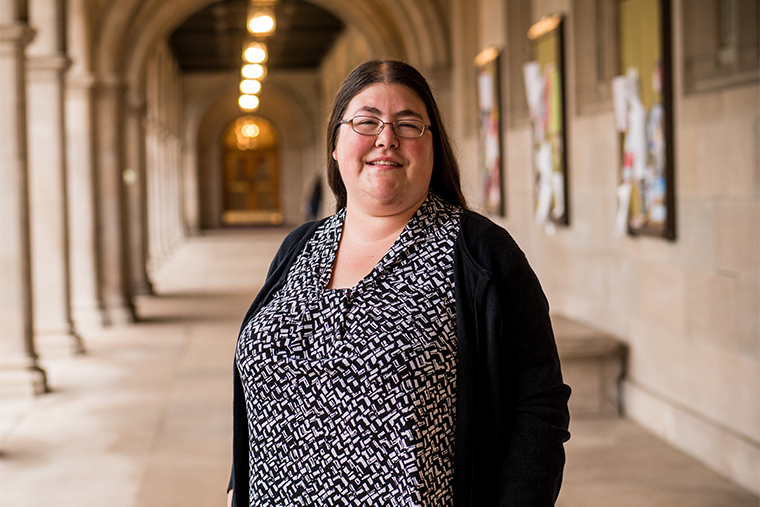The relentless neurological disease amyotrophic lateral sclerosis (ALS) eventually shuts down the entire body, but the devastation starts at a molecular level. Over the years, researchers have linked ALS, also called Lou Gehrig's disease, to a handful of proteins that don't function properly because of genetic mutations. Over time, these distorted or "misfolded" proteins can clump together in the brain and nervous system, potentially gumming up normal nerve function and starting the slow march to total paralysis.

In theory, it might be possible to stop the disease by repairing and preserving these proteins - a possibility that has inspired ongoing experiments and tantalizing findings in the lab of Meredith Jackrel, an assistant professor of chemistry in Arts & Sciences at Washington University in St. Louis.
Neurological diseases may seem like an unusual area of research for a chemist, but Jackrel's expertise with the structure and function of proteins has put her in position to make real progress against ALS.
She recently received a grant from the National Institutes of Health (NIH) worth nearly $430,000 to further her research into Matrin-3, a poorly understood protein that appears to play a pivotal role in some cases of ALS and frontotemporal dementia (FTD), a type of dementia caused by damage to the neurons in the frontal and temporal lobes of the brain.






